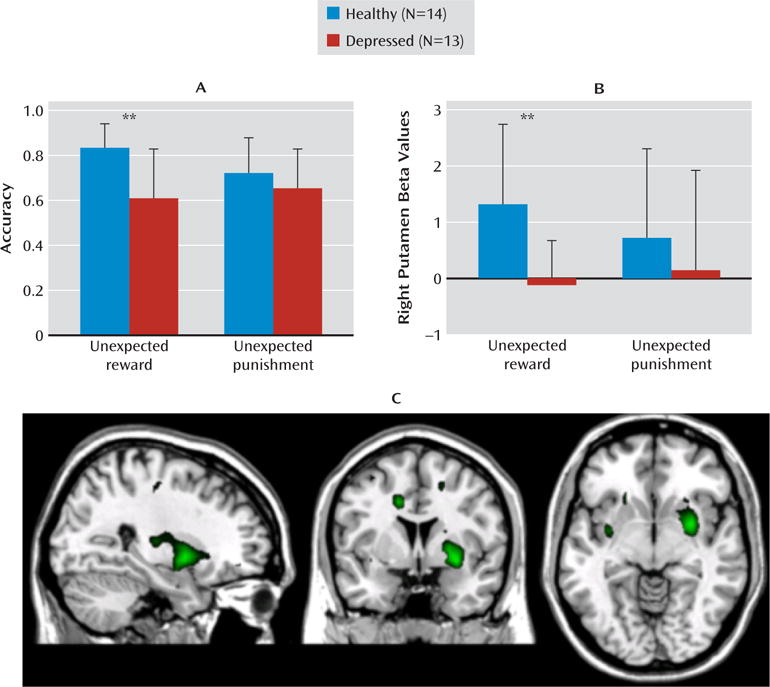FIGURE 1. Impaired Reward Reversal Learning and Attenuated Right Putamen Response to Unexpected Reward in Depressed Individuals Relative to Healthy Comparison Subjectsa.

aAs shown in panel A, accuracy is lower on reward (F=11.7, df=1, 25, p=0.002) but not punishment reversals in depressed individuals relative to healthy individuals. Panel B shows attenuated right (anatomically defined) putamen response during reward reversal trials in depressed individuals relative to healthy individuals (F=10.5, df=1, 25, p=0.003) but equivalent response during punishment reversal. Error bars indicate standard deviations. In panel C, whole brain analysis confirms that the peak neural response difference between depressed and healthy individuals on reward reversal trials was the right anteroventral putamen (peak voxel x=30, y=3, z=–8; image shows SPM t scores ranging from 2.1 to 4.1).
